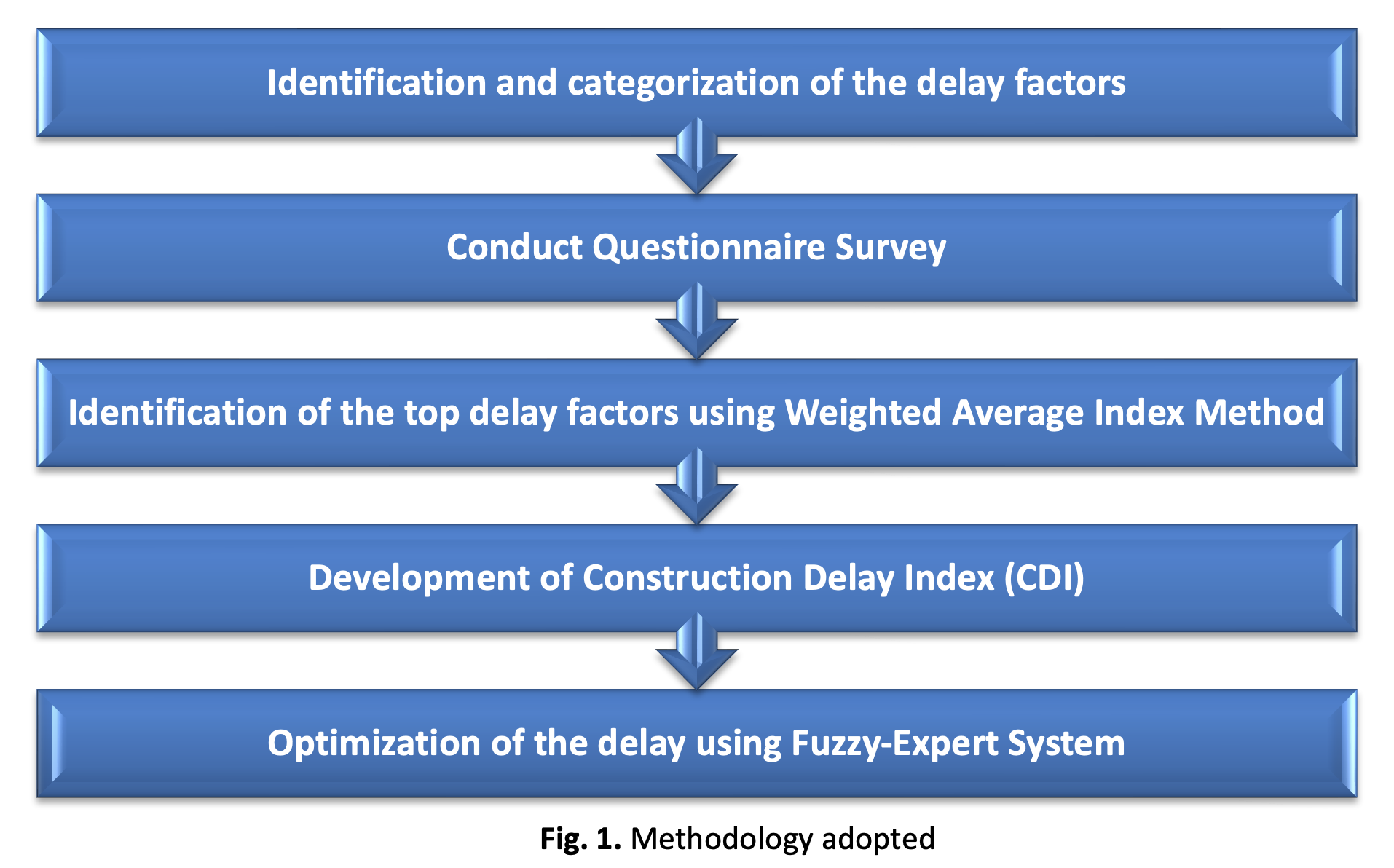Construction Delay Assessment using Compound Index and Fuzzy Optimization Technique: A Case Study of Hyderabad Construction Industry
DOI:
https://doi.org/10.37934/araset.34.2.3049Keywords:
Construction delays, Importance, Frequency, Severity, Compound Index, Fuzzy OptimizationAbstract
Construction projects often encounter delays that can have significant impacts on project timelines and budgets. Understanding the factors contributing to these delays is crucial for project managers to implement effective strategies for timely project completion. This study presents a comprehensive assessment of construction delays in the Hyderabad construction industry using a compound index and fuzzy optimization technique. The compound index incorporates Relative Importance Index (RII), Relative Frequency Index (RFI), Relative Severity Index (RSI), and Normal Rank to rank the factors impacting construction delays. Additionally, fuzzy logic is applied to analyze the outcomes of these factors in different scenarios. Based on the findings, the most significant factors influencing project delays are Owner/Client Related factors, Consultant related factors, and Scheduling. These factors consistently result in "No Delay" outcomes in 67% of cases, underscoring their crucial importance for minimizing project delays. Conversely, Product Related Factors and Rules and Regulations exhibit a relatively lower impact on delays, with outcomes primarily falling under "Moderate Delay" in 45% of cases. Project managers can focus on addressing these higher-impact factors to effectively manage and mitigate delays. However, it is noted that some factors, such as rules and regulations and consultant-related factors, display inconsistent outcomes across different scenarios. This variability suggests that the impact of these factors is contingent on specific circumstances or contextual factors. Hence, project managers should exercise judgment and conduct case-by-case assessments when dealing with such factors.The study emphasizes the significance of prioritizing Owner/Client Related factors, Consultant related factors, and Scheduling to minimize construction delays effectively. While Product Related Factors and Rules and Regulations should not be overlooked, they may be more manageable and subject to case-specific considerations. Adaptability and careful evaluation of contextual factors are essential for project managers in the Hyderabad construction industry to address delays and ensure successful project execution.
Downloads





























